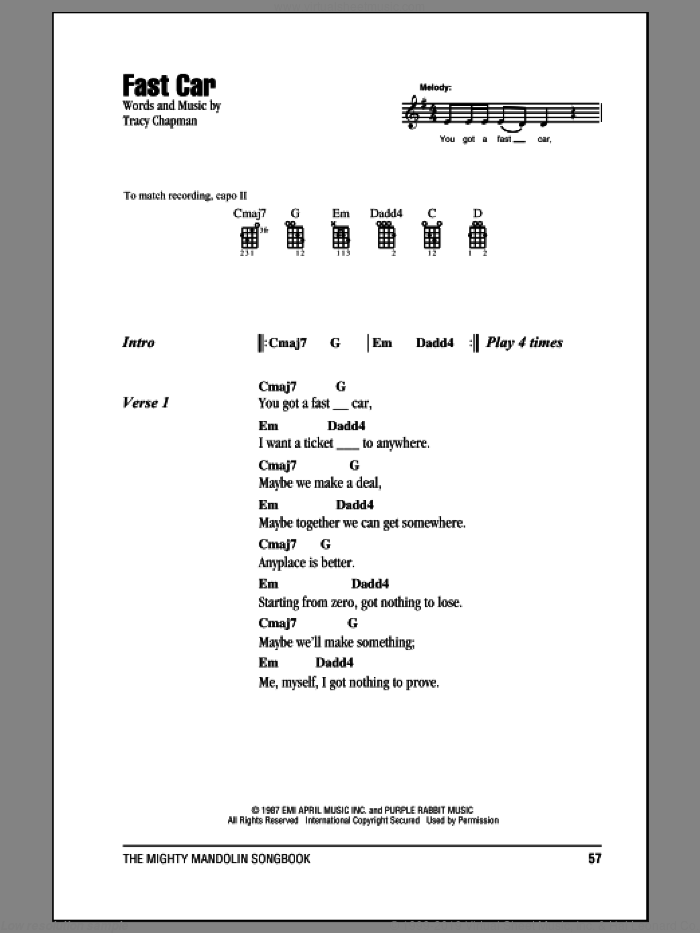


Her demo of the song " Talkin' 'bout a Revolution" was taken to radio stations and, after the success, he copied it and took it to his father. He later discovered that she had recorded demos at the Tufts radio station WMFO for copyright purposes. She finally agreed to talk to him, but did not record any demos for him. Koppelman, however, was very interested in Chapman, so he attended most of her shows. She did not consider the offer seriously. Her presence, her voice, her songs, her sincerity-it all came across." After this, Koppelman told her that his father was at the time a co-owner of SBK Publishing and could help her make a record. He said "Tracy walked onstage, and it was like an epiphany. In an interview he said "I was helping organize a boycott protest against apartheid at school, and told me there was this great protest singer I should get to play at the rally." He went to see Chapman perform at a coffeehouse called Cappuccino. In 1987, Chapman was discovered by fellow Tufts University student Brian Koppelman. Tracy Chapman is one of the best-selling albums of all time. It rose to the top ten on the US Billboard Hot 100 and also did well in Australia, New Zealand, Ireland, the United Kingdom, and other European countries. The song was performed at the Nelson Mandela 70th Birthday Tribute. Three singles were released from the album, with the most commercially successful single being " Fast Car". 1 on the US Billboard 200 and was certified six-times platinum by the Recording Industry Association of America (RIAA), with sales exceeding over six million copies in the United States alone. The album received commercial success in most of the countries it was released, making it to the top of the charts in many countries, including Austria, New Zealand, Switzerland, Denmark, and the United Kingdom. Tracy Chapman gained critical acclaim from a wide majority of music critics, praising the simplicity, Chapman's vocal ability and her political and social lyrical content. Most of the writing is based on political and social causes. It was recorded in Hollywood, California in eight weeks. David Kershenbaum, however, decided to produce it as he wanted to record an acoustic music album. In early attempts to produce the first album, many producers turned down Chapman as they did not favor her musical direction. After multiple performances, however, Koppelman found a demo tape of her singing her single " Talkin' 'bout a Revolution", which he promoted to radio stations, and she was eventually signed to Elektra Records. He offered to show her work to his father, who owned a successful publishing company however, she did not consider the offer to be serious. The album was recorded at the Powertrax studio in Hollywood, California. Tracy Chapman is the self-titled debut album by singer-songwriter Tracy Chapman, released on April 5, 1988, by Elektra Records.


 0 kommentar(er)
0 kommentar(er)
